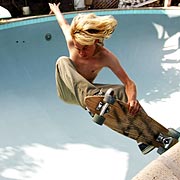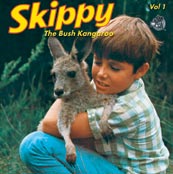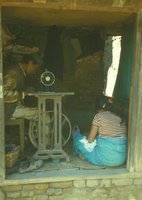It turns out that Mole, who had all but forgotten about his home during the escapades at Toad Hall, was struck down by some animal survival instinct which, according to Grahame, allows all manner of beasties to find their homes, and safety, regardless of which direction they are approaching from. The author goes on to explain that we humans have lost this innate, sixth sense, but that moles, rats, badgers and even toads are still well-equipped with these psychic abilities.
Now, while it seems a bit strange to me to be making such distinctions between animals and humans given that, up until this point in the story, our fluffy heroes had been indulging in all manner of what I would call “human” pursuits, like driving cars, sailing boats and feasting in banquet halls, I do take Grahame’s point that there are some instincts which we all possess, way down deep inside; instincts which, although we may have little actual control over, are there to protect and/or enrich our lives.
I re-discovered one of my hidden, protective instincts just a couple of days ago when Mrs Donkey and I were visiting one of the numerous, impressive ancient tombs of the former Mughal rulers of Delhi. These enormous, red sandstone tombs, with their Islamic minarets and pointed arches, which once would have dotted the otherwise featureless, alluvial desert landscape of these parts, can now be found wedged in between the alleys and sprawling boulevards of New Delhi’s vast socioeconomic spectrum.
After researching the Delhi street directory, the Donkeys wound their way through the tortuous, suburban streets to where it looked as though such a structure might exist. Eventually, after a few garbage-filled dead-ends and switch backs, we slipped through an elaborately ornate arch in the dusky garden wall to join the other tourist sleuths (and a surprisingly large number of canoodling Delhi couples), in marvelling at the incredible architectural gem which rose four stories in front of us.
Safdarjung’s Tomb was erected by a former high official of the Mughal court around the same time that plans were being drawn up for the Taj Mahal, and although on a much more “modest” scale than the Taj, Saf’s Tomb reflects many of its successor’s features, such as the beautifully decorated minarets, onion domes, vaulted chambers and decorative pools which radiate from the central structure out into the garden and which, when filled and on a sunny day, would reflect the grandeur of the monument to the onlooker.
It was the latter which awakened some of Donkey’s latent instincts. Unfortunately, these long, radiating pools have not reflected anything for a very long time, thanks both to the orange haze which has escalated the sprawling metropolis to the top three most polluted cities in the world, and which prevents them from receiving any direct sunlight, and to decades of drought which have left them empty of water. Despite these setbacks, one can still sense their former grandeur by the ornate fountains which stand mutely in the middle of their cement surroundings, and by the avenues of palm trees which line the pools’ edges. But it wasn’t the architecture or landscape gardening that was making Donkey so toey, it was the reawakening of some long-dormant passion at the sight of the empty pools which was making him feel young again.
I’m sad to say that Donkey never really made it as much of a skater, but for many of his teenage years, Donkey lived and breathed skateboards, and the music, clothes, language and attitude which is pivotal to skateboarding culture. I was, I’ll admit, crap at it, but I did love it, and during the late 80s and 90s, you would always find me, well into the late summer evenings, punishing the streets, stairs and curbs of Melbourne’s concrete urban jungle.
And like all committed skaters, Donkey would day dream about, and yearn for the opportunity to one-day stumble across some neighbours’ empty swimming pool, and being allowed to spend a contented summer “dropping in”, “ollie-ing” or “hand-planting” along its sides. As I got older, when I was allowed to drive, even though I was skating less and less, I still carried my “skatie” in the boot of my car and if I ever drove past some car park or office block with some impressive, decorative concrete buttress or walled fountains, I would pull over, grab my skatie and grind away for an hour or so. It would fill me with a great sense of abandon and, just for a short period, made me feel part of the community to which I never really belonged, and which, I must admit, had probably outgrown their passion for skating years before.
Despite periods in which I have tried to get back on the horse, it has been seven or eight years since I was really into skateboarding, and so I was very surprised this week, as everyone else was marvelling at the minarets of Safdarjung’s Tomb, that I couldn’t get my eyes off those empty, crumbling pools as I tried to figure out the “transition and vert” of the walls, and whether the fountains would crumble from a “rail slide” or “frontside grind to fakie”. Although my skatie is in a storage shed, literally on the other side of the world, I still felt compelled to get into that empty pool and feel the tingle on my skin as I imagined speeding back and forth along the crumbling walls while dead, old Safdarjung looked down upon me from his ornate, sandstone perch in disapproval.
Fortunately, the crowd of perplexed, turbaned gardeners who gathered to watch my skateboard-less, simulated hand plants were not so hostile, and gave me a hesitant clap as I emerged, rejuvenated from the empty pool. I ignored the bemused, accusing glare of an embarrassed Mrs Donkey as I punched the air, and turned to shake hands with my fans, Tony Hawk-style.
So in concluding, I would like to call upon a much younger, and certainly less eloquent, anarchic, rebellious, skateboarding Donkey to address Kenneth Grahame’s claims that we humans are no longer in touch with certain instinctive, perhaps psychic abilities, that the rest of the animal kingdom relies upon for survival, everyday. Donkey, Dude?
“Um … yeah, OK … you can fuck off, Mate!” … Sk8 and destroy, Dude! … Peace!”.

The Dream: How it should look. Pic: Google images.
THIS PIC HAS BEEN TEMPORARILY REMOVED
The Reality: Donkey tries a hand-plant, sans skatie, Delhi-style. Pic: Sally
THIS PIC HAS BEEN TEMPORARILY REMOVED
And the pool at Safdarjung's Tomb, from where all of Donkey's deepest instincts resurfaced. Pic: Sally





